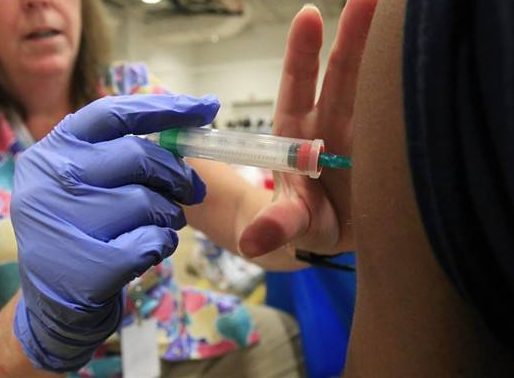The Five Hills Health Region has reported a spike in cases of whooping cough this year; a highly contagious respiratory infection that primarily affects children.

This year, the Five Hills Health Region has seen over 50 cases of whooping cough, also known as pertussis.
The health region says a contributing factor could be a lack of vaccinations.
“It’s a number of factors at play here. One of those is there are some pockets of the population where immunization rates are not as high as we would want them to be and particularly in some communities the immunization rates are even lower,” Dr. Lanre Medu, a Medical Health Officer with the Five Hills Health Region, said.
Dr. Medu also notes that studies show that outbreaks typically occur every four to six years.
“The vaccines for whooping cough are given across life. So infancy upon early adulthood. It’s part of the primary immunizations given to children at two months, four months, six months and 18 months.”
Dr. Medu says vaccines are also given for children four to six-years old, teenagers in grade eight and for adults over the age of 18. He also says the whooping cough is usually treated with a five-day antibiotic treatment. After that, the patient is no longer infectious.
Some of the day cares in Moose Jaw have been hit by the recent outbreak.
While they didn’t have it as bad as others, the Northwest Child Development Centre in Moose Jaw did see one case in April.
- Buzz kill? Gen Z less interested in coffee than older Canadians, survey shows
- Naloxone-resistant street drug linked to 9 deaths in Eastern Canada seized in Alberta
- Bird flu risk to humans an ‘enormous concern,’ WHO says. Here’s what to know
- Canada updating sperm donor screening criteria for men who have sex with men
“When whooping cough went around I made sure all the staff knew what the signs were, what it sounds like, so that even if we think this may be (it), you need to get it checked out,” said Northwest Child Development Centre Director Crystal Kober-McCubbing.
Kober-McCubbing also says the day care takes extra precautions.
“So I make sure that all of my parents are informed, all of my staff are informed. We have really strict policies on anything that’s contagious, so you cannot come back unless you are cleared by a doctor,” she said.
“Anything that we thought was out of the ordinary, so sort of a deeper cough, those children we would make get checked out.”
Some of the initial signs and symptoms of whooping cough include a mild cough, runny nose, sneezing and a low-grade fever. After one or two weeks, the patient can experience coughing spells. In children, the coughing spells can even cause them to stop breathing and pass out in some instances.
“Typically, whooping cough initially starts as a runny nose in the early stages of the disease, and that’ll last for about one week with a low-grade fever,” Dr. Medu said. “So typically when you have a cough that lasts more than two weeks, with that associated “whoop” sound that you hear, it’s something for you to suspect that is may be whooping cough.”



Comments